Tumor heterogeneity long been recognized as a significant barrier to advancing personalized diagnosis and treatment. Among its manifestations, tumor metastasis stands out as a common and serious feature of malignant tumors, profoundly impacting patients’ survival rates and quality of life. Tumor organoids, clusters of cells derived from tumor-specific stem cells within tumor tissue, are cultivated through three-dimensional tissue culture. These organoids mimic tumor characteristics and cell heterogeneity in vivo, offering a reliable model for tumor research and treatment. Importantly, they pave the way for personalized cancer diagnosis and treatment solutions. However, current in vitro methods for assessing tumor metastasis using tumor organoid technology are insufficient. Traditional techniques for evaluating cell migration, such as Transwell and cell scratching, fall short in simulating the primary tumor metastasis process, thus failing to effectively assess tumor metastasis. Organ-on-a-chip technology, which mimics human organ functions by integrating microchips and biological materials, enables more precise studies and testing of drug effects, understanding disease mechanisms, and developing personalized diagnosis and treatment methods. However, most organ-on-chip models used to study tumor metastasis rely on conventional tumor cell lines, which significantly differ from patient-derived tumor cells. Consequently, reconstructing the real tumor metastasis process remains challenging, rendering existing methods inadequate for clinical application.
Recently, a research team published an original paper titled “Mimicking Tumor Metastasis Using a Transwell-Integrated Organoids On-a-Chip Platform” online in the journal “Small” (IF=13.3). This study proposes a tumor organoid-on-a-chip for assessing tumor metastasis. The chip faithfully replicates the physiological processes of tumor growth and metastasis within the human body, effectively evaluating the invasion and growth capabilities of patient-derived tumor cells. It presents a crucial tool for studying tumor metastasis, informing corresponding tumor treatment strategies, and advancing drug research.
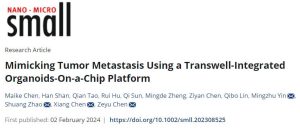
First, the author elaborated on the principles of tumor heterogeneity and the process of tumor metastasis. Based on the traditional method of assessing cell migration ability, they proposed a Transwell integrated tumor organoid chip strategy to accurately assess tumor metastasis.
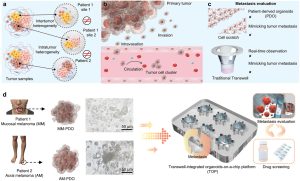 Figure 1. Transwell integrated tumor organoid chip for assessment of tumor metastasis and drug screening
Figure 1. Transwell integrated tumor organoid chip for assessment of tumor metastasis and drug screening
Then, the author used high-precision 3D printing technology to create the hexagonal bracket of the chip chamber and employed laser cutting technology to manufacture the chip body. Finally, they assembled it into a bionic tumor organoid chip with an integrated Transwell unit.
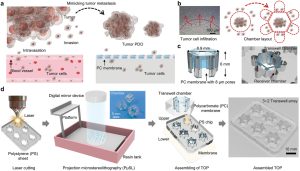 Figure 2. Manufacturing of Bionic Tumor Organoid Chips
Figure 2. Manufacturing of Bionic Tumor Organoid Chips
The authors further used the Tumor Organoid Chip to evaluate the tumor metastasis capacity of patient-derived mucosal melanoma organoids and acral melanoma organoids. By establishing a nutrient gradient within the organoid chip, where the nutrient concentration in the outer chambers is higher than that in the central chamber, tumor organoids in the central chamber gradually moved to the outer chambers. It was observed that the two melanoma organoids exhibited different tumor metastasis abilities.
 Figure 3. Tumor Organoid Chip Assessment of Tumor Metastasis
Figure 3. Tumor Organoid Chip Assessment of Tumor Metastasis
Next, the authors studied the differences between the transferred cell clusters and the non-metastatic tumor organoid clusters in the central cavity at the protein and gene levels. The results showed that the expression of metastasis-related proteins and genes in the transferred cell clusters was significantly higher than that in the non-transferred organoid clusters. This effectively illustrates the ability of tumor organoid chips to evaluate tumor metastasis.
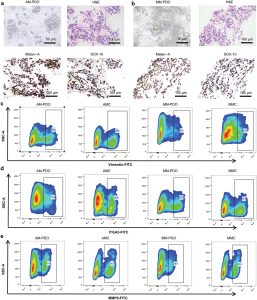 Figure 4. Tumor Organoid Consistency Assessment and Flow Cytometry Analysis
Figure 4. Tumor Organoid Consistency Assessment and Flow Cytometry Analysis
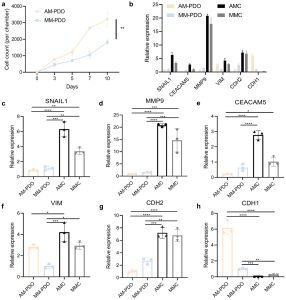 Figure 5. Protein Comparison of Tumor Metastasis
Figure 5. Protein Comparison of Tumor Metastasis
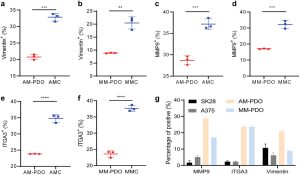 Figure 6. Comparison of Genes in Tumor Metastasis
Figure 6. Comparison of Genes in Tumor Metastasis
Finally, the authors used organoid chips to perform drug screening tests. By adding different concentrations of anti-tumor drugs into the organoid chip, they found that the metastasis of tumor organoids varied. As the drug concentration increased, tumor metastasis was significantly inhibited.
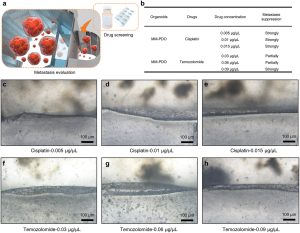 Figure 7. Tumor Organoid Chip Drug Screening
Figure 7. Tumor Organoid Chip Drug Screening
Compared with other methods for evaluating cell migration ability, the tumor organoid chip provided in this work for evaluating tumor metastasis integrates a bionic Transwell chamber, which can efficiently simulate the process of tumor metastasis. In addition, the tumor organoid chip designed to evaluate tumor metastasis uses patient-derived tumor organoids, reflecting the physiological process of tumor growth and metastasis in the human body. This work holds promising application prospects in clinical research such as personalized diagnosis and treatment of tumor patients and precision medicine.
Reference:
Chen, H. Shan, Q. Tao, R. Hu, Q. Sun, M. Zheng, Z. Chen, Q. Lin, M. Yin, S. Zhao, X. Chen, Z. Chen, Mimicking Tumor Metastasis Using a Transwell-Integrated Organoids-On-a-Chip Platform. Small 2024, 2308525. https://doi.org/10.1002/smll.202308525
Related Services:
Microfluidic Chip Development Services for Organ-On-A-Chip
